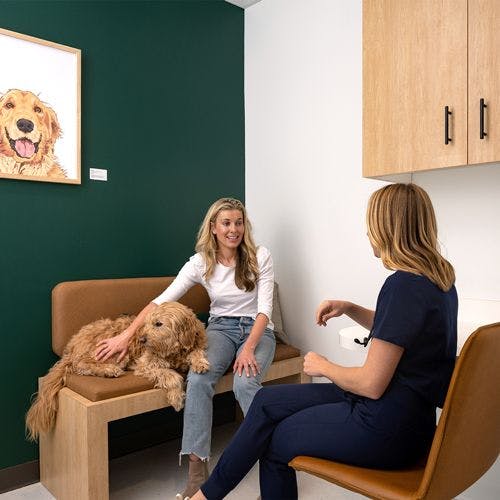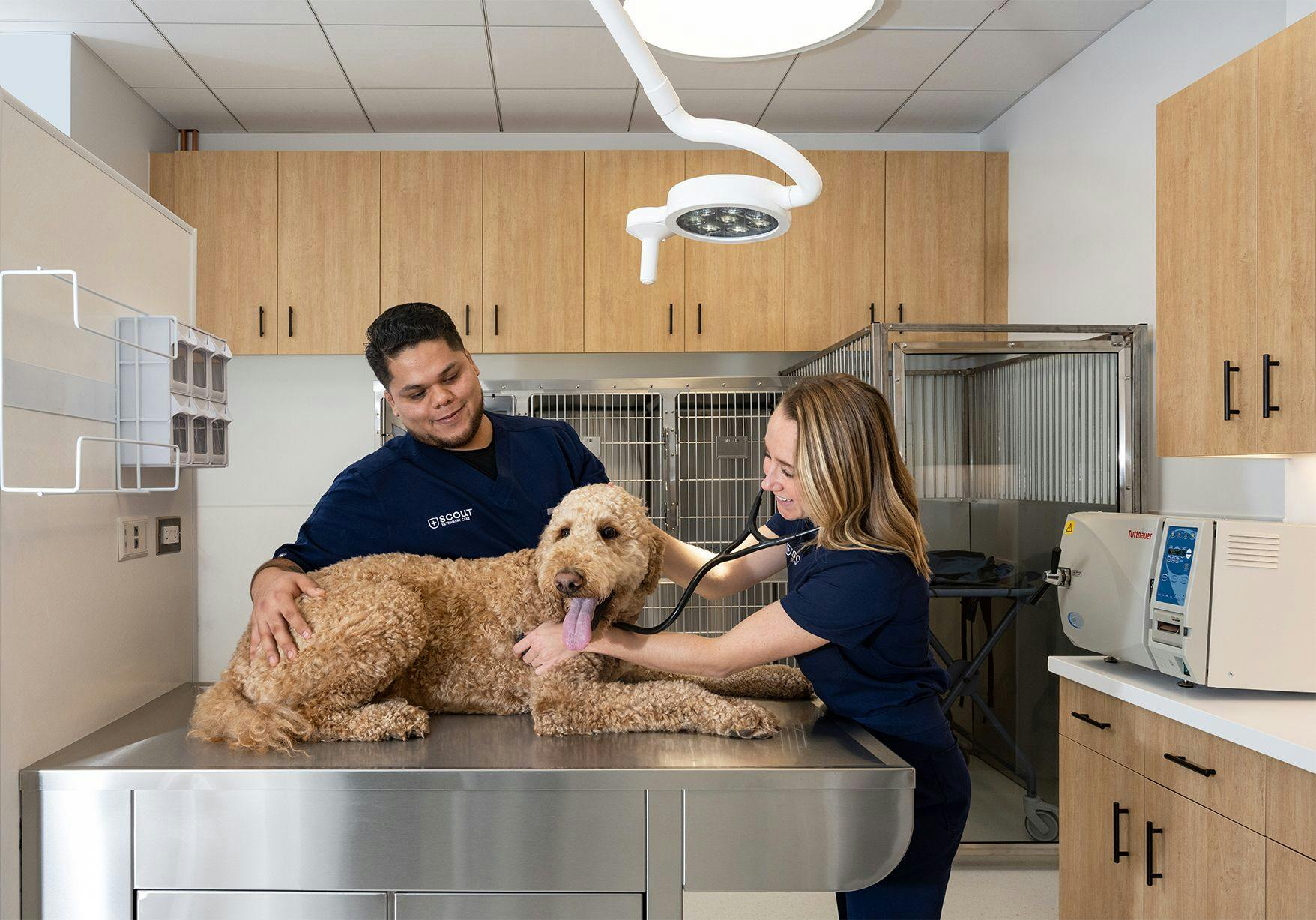

Hi there! Cats can be tricky with urinary problems. We are here to help.
What’s going on with your pet? Here are some signs of a UTI to watch for:
There are many overlapping symptoms with cats that have a sterile cystitis (feline lower urinary tract disease)and cats that have a bacterial infection. It can be impossible to tell at home. Both of these conditions can be irritating, painful, and cause severe health concerns.Here’s what to look for:
Blood: A little tinge of blood is common. Clots or the entire voided puddle looking like blood are causes for concern.
Odor: A strong odor can be common even with normal urine. However, an odor that smells foul or fishy is not normal.
Changes to urination pattern:
- - Urinating smaller volumes more frequently
- - Posturing to urinate with only a small amount of urine passed
- - Acting like they still need to go immediately after urinating
- - Urinating outside of the box
- - Vocalizing in the litter box
If they are straining to urinate and nothing is coming out, that can be a sign of obstruction/blockage and you should see a veterinarian immediately.


Here’s what you can do...
HOW TO DEAL WITH UTIs AT HOME
- Offer plenty of fresh water. Your pup may want to drink a lot to help flush out their body. Let them! It may make a mess but it’s very important that they stay hydrated. Never restrict water if there is concern for an infection.
- Add more litter boxes. If you think that you have enough, add one more just in case. You want to give your cat plenty of opportunity to empty their bladder.
- What about cranberry? We get it, you want to DO something to help. Giving a cranberry supplement is not likely to hurt. Choosing one that is formulated for dogs is important because some additives in human supplements can be harmful to dogs. It is important to know that cranberry supplements are not likely to totally resolve an infection. While it may improve some signs, it is still important to seek care.

Does your pet need Urgent Care?
Yes. Urinary tract infections that are left untreated can turn into kidney infections, cause the formation of stones, and lead to other health problems.
What can you expect from your visit?
Your Scout veterinarian may recommend:
Bloodwork: To ensure that the infection has not spread to the kidneys, your Scout veterinarian may recommend bloodwork to look at kidney function and/or to look for signs that the infection is not more severe.
Urine testing: Looking at the urine is a big part of the diagnostic and treatment process. It can help determine if there is an infection, as well as how to best treat it and maybe even why it happened in the first place. The two most common tests are a urinalysis and urine culture.
X-rays: Some UTIs are caused by bladder stones or will cause the formation of stones. Many stones will show up on an X-ray.
Ultrasound: An ultrasound is used to safely collect a sterile urine sample (cystocentesis). Your Scout veterinarian may also be able to tell how irritated the bladder wall is and/or if there may be stones contributing to your pet’s symptoms.. An ultrasound does not replace an X-ray when indicated. These tests work together to give the best information.
Treatments: Your Scout veterinarian wants your pet to feel better just as much as you do! They may recommend fluids under the skin to help with dehydration, antibiotics, pain medications, and/or a special diet.
Follow up appointments: For a first time, simple UTI, there may not be any recommended follow-up appointments. However, your Scout veterinarian may recommend a follow-up appointment to ensure the infection is truly under control and/or discuss prevention strategies. If you have a primary care veterinarian, we will recommend that you continue care at their clinic to ensure the best long-term management. If not, Scout can help you until you are able to find a primary care!
Referral: We hate to say it but sometimes your pet needs someone outside of Scout. If we diagnose stones or the infections keep coming back, we will help get you connected to one of the amazing doctors in Chicago that can help you with surgery or additional management.
Remember that you are the best advocate for your pet. If you think it’s a problem, it probably is! We are here for you in your time of need.
Next available appointment in Chicago:
Lincoln Park
2369 N. Lincoln Ave. Chicago, IL 60614
773-676-8166
OPEN 7 DAYS A WEEK 10A-8P
West Loop
112 N. May St. Chicago, IL 60607
773-676-2988
OPEN 7 DAYS A WEEK 10A-8P
See Scout today.
Book an appointment online up to 36 hours in advance.






